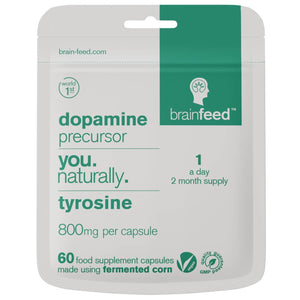The role of dopamine in anti-dopamine parenting: facts VS opinion
filter
That’s right, there’s a new parenting style in town. It’s based on the panic surrounding our reward and pleasure messenger and hormone called dopamine that’s flooding social media. This article tells the story of the so-called anti-dopamine parenting while highlighting the benefits of dopamine.
Dopamine: the world of pleasure and reward
Dopamine is a brain messenger and hormone linked to pleasure and reward[1 Trusted Source 2005 - Acta Psychiatrica Scandinavica Research evaluation The role of dopamine in reward and pleasure behaviour – review of data from preclinical research ] . When children are experiencing pleasurable events like walking in the park or playing Monopoly, dopamine gets released[2 Trusted Source 1997 - Science Research evaluation A Neural Substrate of Prediction and Reward ] , [3 Trusted Source 1989 - Behavioral Neuroscience Research evaluation Taste Reactivity Analysis of 6-Hydroxydopamine-Induced Aphagia: Implications for Arousal and Anhedonia Hypotheses of Dopamine Function ] . Their brain then associates the release of dopamine with pleasure and creates a reward system[2 Trusted Source 1997 - Science Research evaluation A Neural Substrate of Prediction and Reward ] , [3 Trusted Source 1989 - Behavioral Neuroscience Research evaluation Taste Reactivity Analysis of 6-Hydroxydopamine-Induced Aphagia: Implications for Arousal and Anhedonia Hypotheses of Dopamine Function ] . Imagine a child eating pizza for example. A nicely baked crust and just the right amount of cheese boost dopamine release, making them feel good. Their brain decodes that as them being rewarded and strengthens the reward-related memories, hence the occasional pizza cravings[4 Trusted Source 2023 - Science Advances Animal study Dopamine error signal to actively cope with lack of expected reward ] . Regardless of the chosen pleasurable activity and how often it’s done, the impact of pleasurable activities stays the same, meaning the body’s reward system stays in place even when a child plays video games or eats sweets. For a child’s body to produce enough dopamine you should make sure they get enough of dopamine’s building block called tyrosine. This compound can be found in protein-rich foods and it’s also available as a supplement for adults. brain feed developed the world's 1st natural 800mg capsule from fermented corn.
The role of dopamine in desire
Happiness, pleasure and desire are different things that affect each other greatly[5 Trusted Source 2003 - Brain and Cognition Research evaluation Pleasures of the brain ] . Happiness is an emotional state defied by feelings of joy, satisfaction, contentment, and fulfilment. Experiencing pleasure usually makes you happy. Desire though can be defined in many different ways. For the purpose of this article, let’s define it as sustained interest[5 Trusted Source 2003 - Brain and Cognition Research evaluation Pleasures of the brain ] . So, where does dopamine come in? Dopamine regulates sustained interest while being released. Let’s take a look at a child playing Scrabble. They feel pleasure while playing it. Because they enjoy it, dopamine makes them feel like they’re getting rewarded and that’s what makes them want it more[2 Trusted Source 1997 - Science Research evaluation A Neural Substrate of Prediction and Reward ] , [3 Trusted Source 1989 - Behavioral Neuroscience Research evaluation Taste Reactivity Analysis of 6-Hydroxydopamine-Induced Aphagia: Implications for Arousal and Anhedonia Hypotheses of Dopamine Function ] .
The benefits of dopamine
One of the main benefits of dopamine is that it boosts motivation[2 Trusted Source 1997 - Science Research evaluation A Neural Substrate of Prediction and Reward ] , [3 Trusted Source 1989 - Behavioral Neuroscience Research evaluation Taste Reactivity Analysis of 6-Hydroxydopamine-Induced Aphagia: Implications for Arousal and Anhedonia Hypotheses of Dopamine Function ] . When you experience pleasure from something that turns into a reward[6 Trusted Source 2010 - Oxford University Press 3rd-party resource The neurobiology of desire: Dopamine and the regulation of mood and motivational states in humans ] . Regardless of whether the reward is something you are given or just a feeling inside, a Norweigan study on 826 employees showed that both types of rewards are considered principal motivators[8 Trusted Source 2009 - Human Resource Management Journal Human study Perceived investment in employee development, intrinsic motivation and work performance ] . Therefore, dopamine and motivation go hand in hand. A child playing football, for example, enjoys the game and perceives it as a reward in itself because of dopamine. Therefore, they’re motivated to play football regardless of whether they’re winning or playing in a championship. As the saying goes, participation is the most important part. What about goals?
Dopamine is vital for achieving life's objectives and goals
Dopamine is essential for achieving life’s objectives and goals because it acts as a motivator[5 Trusted Source 2003 - Brain and Cognition Research evaluation Pleasures of the brain ] , [6 Trusted Source 2010 - Oxford University Press 3rd-party resource The neurobiology of desire: Dopamine and the regulation of mood and motivational states in humans ] . When you've achieved (or are close to achieving) a goal, dopamine gets released. It creates feelings of motivation, satisfaction and productivity. It fuels the focused interest in a goal and the drive to obtain it[6 Trusted Source 2010 - Oxford University Press 3rd-party resource The neurobiology of desire: Dopamine and the regulation of mood and motivational states in humans ] . It’s almost like dopamine helps you form a goal. For example, a child enjoys dance classes a lot. Participating in the classes is rewarding and pleasurable, meaning dopamine boosts the child’s motivation to dance. Because the child is so invested in dancing, they set a goal to win a dance competition. Regardless of the outcome, dopamine is always doing its magic, motivating the child to keep on dancing.
The truth behind anti-dopamine parenting
Based on all of that, you may be asking yourself, how come dopamine’s got such a bad reputation and why was the term anti-dopamine parenting even invented? At first glance, this term suggests parents should omit children’s dopamine-boosting activities. Some parents are particularly questionable about dopamine and sugar cravings, believing that children can build up dopamine tolerance and start finding the “usual” activities like eating fruit unenjoyable and unrewarding after eating a lot of junk food[7 Trusted Source 2019 - Nature Research evaluation Dissociable dopamine dynamics for learning and motivation ] . This fear is based on a hypothesis by Dr Lembke, the author of Dopamine Nation, which has yet to be tested to this day[9 Trusted Source 2023 - The New York Times 3rd-party source We Have a Dopamine Problem ] , [10 Trusted Source 1997 - Behavioural Brain Research Research evaluation TITNeural mechanisms of tolerance to the effects of cocaineLE ] . However, experts on this topic are critiquing the idea and trying to paint a different picture; instead of counselling parents to cut dopamine out of their kids' life, they’re all talking about moderation when choosing activities to do with their children[9 Trusted Source 2023 - The New York Times 3rd-party source We Have a Dopamine Problem ] . Sure, let your children play video games but also make sure you go on a walk and play board games together[7 Trusted Source 2019 - Nature Research evaluation Dissociable dopamine dynamics for learning and motivation ] . What about dopamine and screen time? As long as you also encourage your child to read, moderate screen time is fine[7 Trusted Source 2019 - Nature Research evaluation Dissociable dopamine dynamics for learning and motivation ] . It’s also okay to let your children have sweets from time to time while at the same time remembering to include as many vegetables and healthy proteins as possible in home-cooked meals[7 Trusted Source 2019 - Nature Research evaluation Dissociable dopamine dynamics for learning and motivation ] .
So, instead of denying your children child-like activities completely, focus on providing them with a rich repertoire of choices; you can pick from outdoor and indoor activities, screen time, reading, talking, playing alone and with others, board games and video games, and much more.
References
[1] Bressan, R. A., & Crippa, J. A. (2005). The role of dopamine in reward and pleasure behaviour – review of data from preclinical research. Acta Psychiatrica Scandinavica, 111(s427), 14–21.
[2] Schultz, W., Dayan, P., & Montague, P. R. (1997). A Neural Substrate of Prediction and Reward. Science, 275(5306), 1593–1599.
[3] Berridge, K. C., Venier, I. L., & Robinson, T. E. (1989). Taste Reactivity Analysis of 6-Hydroxydopamine-Induced Aphagia: Implications for Arousal and Anhedonia Hypotheses of Dopamine Function. Behavioral Neuroscience, 103(1), 36–45.
[4] Ishino, S., Kamada, T., Sarpong, G., Kitano, J., Tsukasa, R., Mukohira, H., Sun, F., Li, Y., Kobayashi, K., Honda, N., Oishi, N., & Ogawa, M. (2023). Dopamine error signal to actively cope with lack of expected reward. Science Advances, 9, eade5420
[5] Berridge, K. C. (2003). Pleasures of the brain. Brain and Cognition, 52(1), 106–128.
[6] Leyton, M. (2010). The neurobiology of desire: Dopamine and the regulation of mood and motivational states in humans. In M. L. Kringelbach & K. C. Berridge (Eds.), Pleasures of the brain (222–243). Oxford University Press.
[7] Mohebi, A., Pettibone, J. R., Hamid, A. A., Wong, J.-M. T., Vinson, L. T., Patriarchi, T., Tian, L., Kennedy, R. T., & Berke, J. D. (2019). Dissociable dopamine dynamics for learning and motivation. Nature, 570(7759), 65–70.
[8] Kuvaas, B., & Dysvik, A. (2009). Perceived investment in employee development, intrinsic motivation and work performance. Human Resource Management Journal, 19(3), 217–236.
[9] Smith, D. G. (2023). We Have a Dopamine Problem. The New York Times. https://www.nytimes.com/2023/06/30/well/mind/dopamine-brain-behavior.html
[10] Hammer, R. P., Egilmez, Y., & Emmett-Oglesby, M. W. (1997). Neural mechanisms of tolerance to the effects of cocaine. Behavioural Brain Research, 84(1–2), 225–239.


 alertness
alertness
 cognition
cognition
 sleep
sleep
 wellbeing
wellbeing







Leave a comment
Open tab